No cause for optimism in divided Turkey
- Published
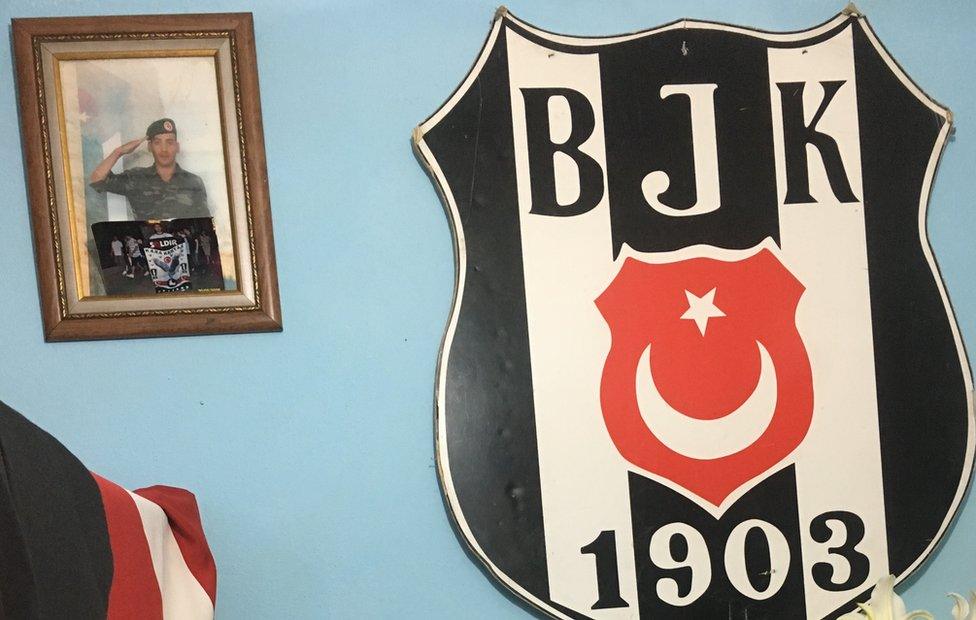
Kadriye Uncu has left her son's room the way it was: the black and white striped flag of Besiktas FC covering his bed and on the wall the football club's shield and a photo of him in uniform during his military service.
But the room will forever lie empty. On the evening of 10 December her son, Tunc, was killed by a car bomb.
A lifelong Besiktas fan, he was working at the stadium in Istanbul on the Saturday evening during a match with a local team.
An hour after the game ended, a car bomb hit a riot police vehicle outside the stadium. Moments later, a suicide bomber approached another group of police and detonated his device. At least 44 people were killed and dozens more injured.
"When I got the news, I collapsed," Kadriye recalls. "At the hospital they showed me his body. He smelled beautiful, like a rose. I kissed him. And then we buried him."
She pauses - muttering some words to herself - and is unable to hold back the tears.
"May the terrorists be uprooted. Mothers shouldn't cry anymore. May God spare everyone this pain and may there be peace for Turkey."
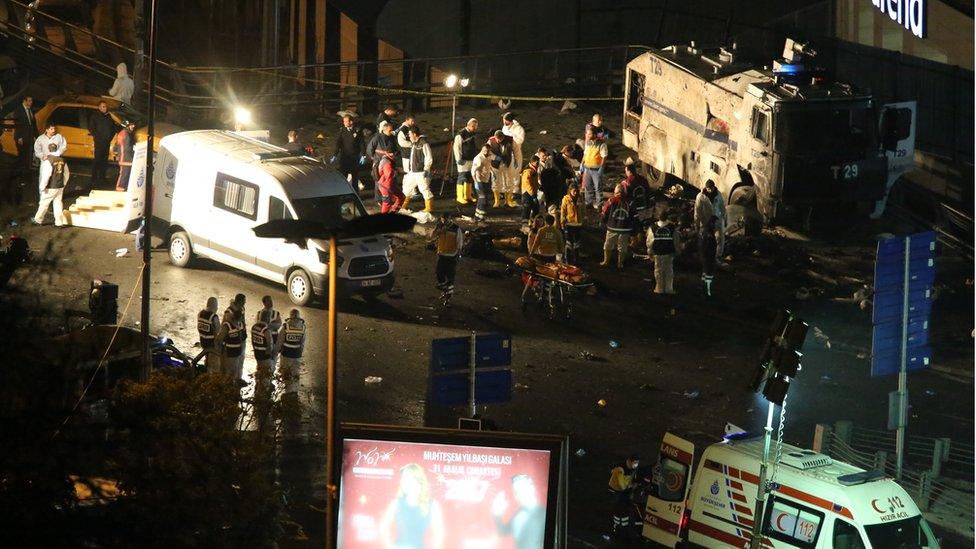
The aftermath of the Besiktas bombing
Her call comes in vain.
A week after the Besiktas bombing, another in the central city of Kayseri killed more than a dozen people. Both attacks were claimed by Kurdish militants - and there have been many more. Turkey has seen 22 terror attacks this year by Kurdish groups and the so-called Islamic State, killing at least 360 people.
The cycle of violence has marked, perhaps, the most turbulent year in Turkey's modern history.
As Turkey has become ever more embroiled in the Syrian war, launching a ground operation this year, it's extremely vulnerable.
IS struck at Istanbul airport in June, and elsewhere, including a wedding party in Gaziantep, in the south-east of the country. The Kurdish-linked attacks have gone hand-in-hand with a worsening of the insurgency in south-east Turkey.
Since a ceasefire with the PKK Kurdish militant group broke down in 2015, a wave of tit-for-tat violence has followed. The PKK have blown up Turkish soldiers and police; the state has attacked them and imposed curfews in many areas.
According to the International Crisis Group, 2500 people have been killed - including civilians - and 500,000 have been driven from their homes.
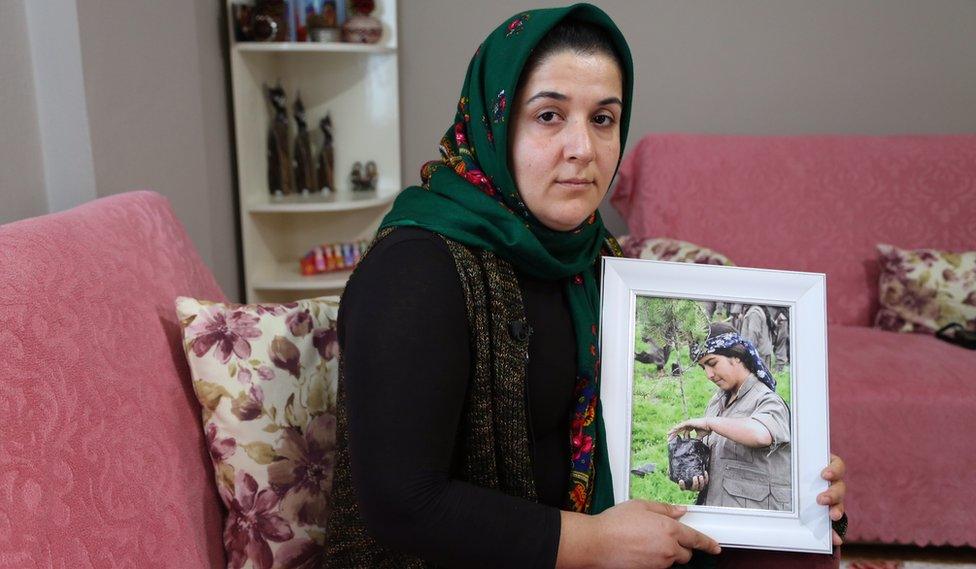
Melek Tan says the regime has blood on its hands
Esma Tan fought with the PKK and was killed in the town of Sirnak, which has faced repeated curfews. Her body could only be retrieved after six months.
"She faced discrimination for being a Kurd and for being 'the other'," her sister Melek tells me. "She was a musician and wanted to discover her own culture. And she saw the massacres, especially of the past year - so that environment made her into a fighter."
Turkey, the EU and the US label the PKK terrorists. But Melek rejects this.
"We don't give importance to what a regime says, which is only after its own interests and the leadership of one man," she explains, referring to President Erdogan. "If there's terrorism in Turkey, it's state terrorism against the people. We've found people burned alive in basements and bodies abandoned on the streets. Isn't that terrorism? The regime has blood on its hands."
Turkey's climate of insecurity was fertile ground for the defining moment of this year.
On 15 July, rebel soldiers bombed parliament and drove tanks into civilians in an attempted coup. It failed. But at least 265 people were killed resisting it.
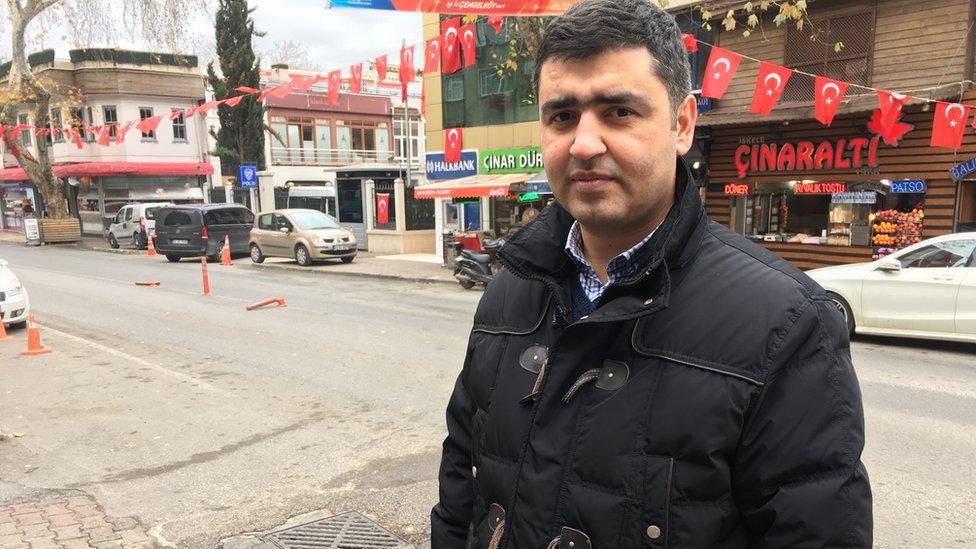
Lawyer Fatih Canbay opposed the coup attempt but is worried by the resulting purge
The government blamed the US-based cleric Fethullah Gulen and his followers for arguably the gravest ever attack on the Turkish state. He denies involvement - but tens of thousands have been arrested or dismissed from their jobs, charged with links to his movement.
Lawyer Fatih Canbay was one of those who answered President Erdogan's call to take to the streets that night to stop the tanks. He shows me the spot where coup-plotting soldiers stopped him, ordering him to lie down for hours on the street. From there, he could see the jets overhead and hear the tanks on the Bosphorus bridge.
"We couldn't have tolerated the coup attempt," he says. "It was like something precious was being forcefully taken away from us at gunpoint."
But since then, he's represented some of the civil servants caught up in the purge - and is worried by what he sees.
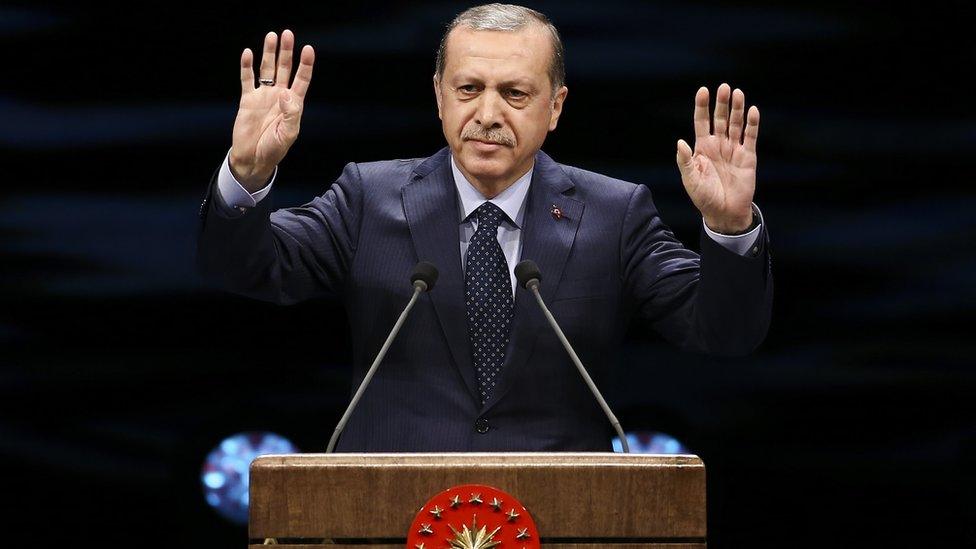
President Erogan has arrested thousands and curbed the freedom of the media
"If the coup had succeeded it would have been far worse. But I have friends in prison who have no links to Gulen. There was an attempt to steal our lives that night. But on a smaller scale, we're facing a similar attempt now, as the rule of law is eroded."
So what of the mood in Turkey after a harrowing year?
This is a defiant nation, but an anxious and divided one too.
In 2017, President Erdogan will try to enhance his powers through constitutional change. He argues it'll bring stability, but many fear it'll deepen polarisation and conflict.
2016 has exhausted Turkey. And optimism for next year is painfully hard to find.
- Published21 December 2016
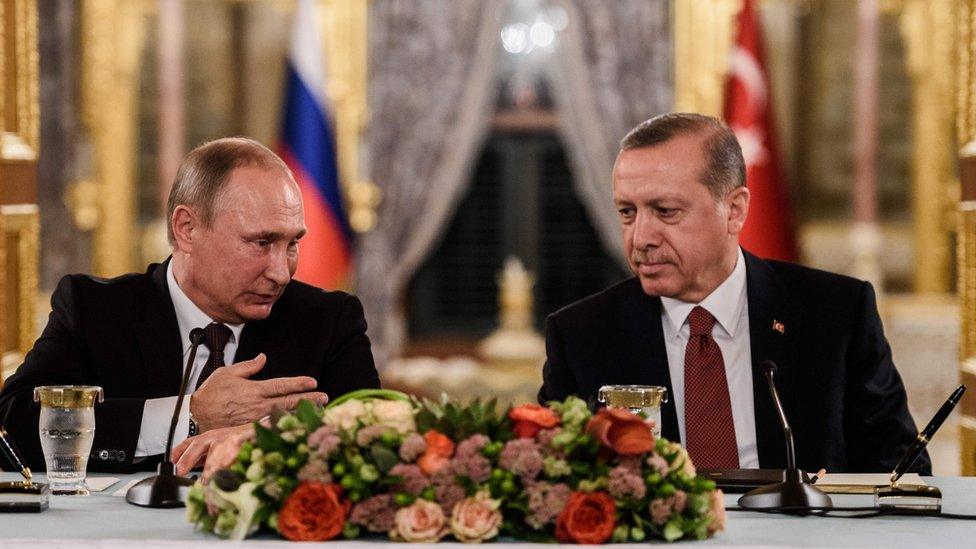
- Published20 December 2016
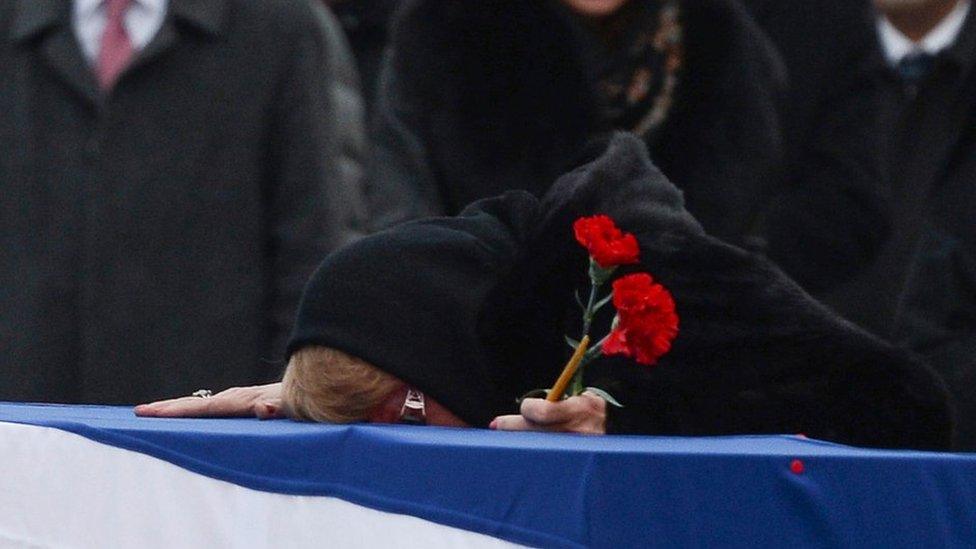
- Published20 December 2016
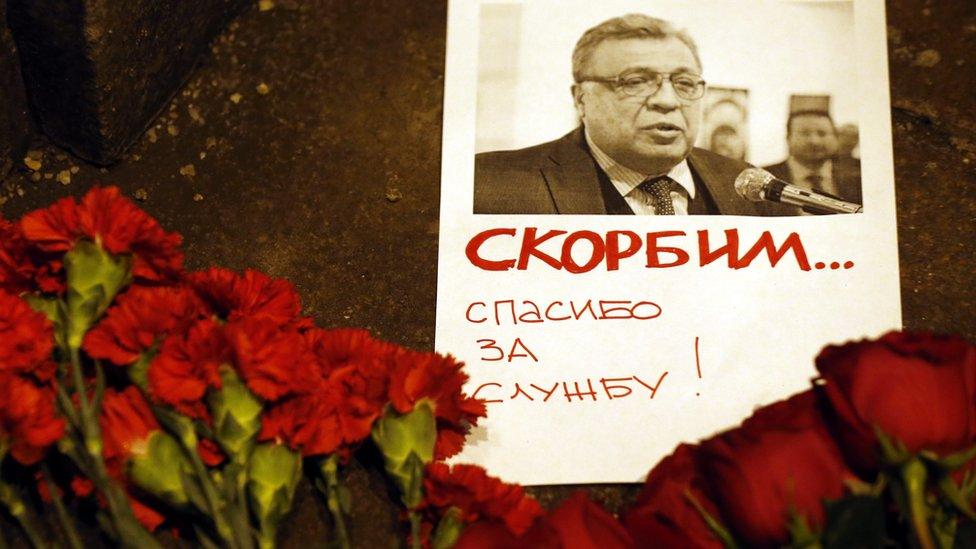
- Published9 August 2016
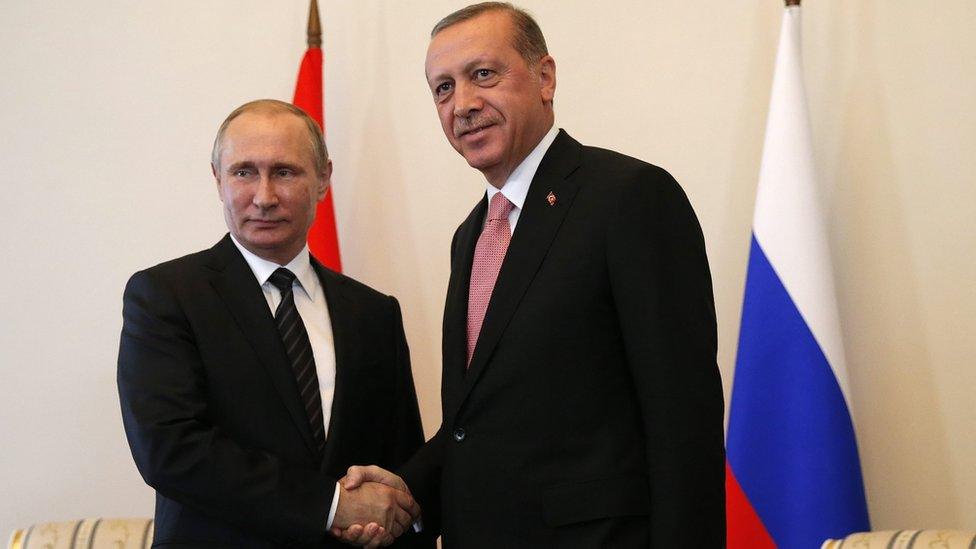
- Published1 December 2015
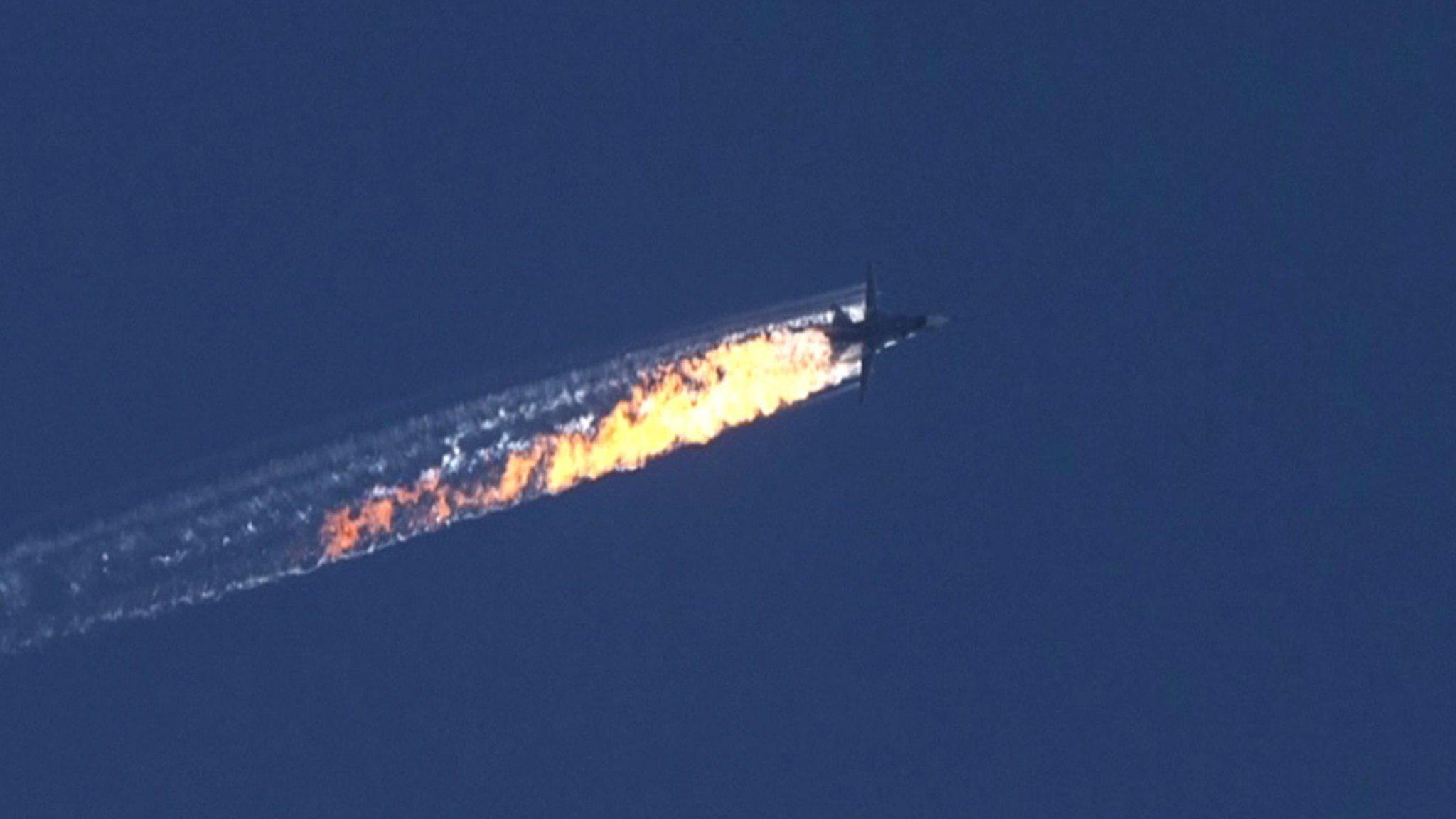
- Published22 August 2023
